I personally use the Jackson module for Kotlin that you can find here: jackson-module-kotlin.
implementation "com.fasterxml.jackson.module:jackson-module-kotlin:$version"
As an example, here is the code to parse the JSON of the Path of Exile skilltree which is quite heavy (84k lines when formatted) :
Kotlin code:
package util
import com.fasterxml.jackson.databind.DeserializationFeature
import com.fasterxml.jackson.module.kotlin.*
import java.io.File
data class SkillTreeData( val characterData: Map<String, CharacterData>, val groups: Map<String, Group>, val root: Root,
val nodes: List<Node>, val extraImages: Map<String, ExtraImage>, val min_x: Double,
val min_y: Double, val max_x: Double, val max_y: Double,
val assets: Map<String, Map<String, String>>, val constants: Constants, val imageRoot: String,
val skillSprites: SkillSprites, val imageZoomLevels: List<Int> )
data class CharacterData( val base_str: Int, val base_dex: Int, val base_int: Int )
data class Group( val x: Double, val y: Double, val oo: Map<String, Boolean>?, val n: List<Int> )
data class Root( val g: Int, val o: Int, val oidx: Int, val sa: Int, val da: Int, val ia: Int, val out: List<Int> )
data class Node( val id: Int, val icon: String, val ks: Boolean, val not: Boolean, val dn: String, val m: Boolean,
val isJewelSocket: Boolean, val isMultipleChoice: Boolean, val isMultipleChoiceOption: Boolean,
val passivePointsGranted: Int, val flavourText: List<String>?, val ascendancyName: String?,
val isAscendancyStart: Boolean?, val reminderText: List<String>?, val spc: List<Int>, val sd: List<String>,
val g: Int, val o: Int, val oidx: Int, val sa: Int, val da: Int, val ia: Int, val out: List<Int> )
data class ExtraImage( val x: Double, val y: Double, val image: String )
data class Constants( val classes: Map<String, Int>, val characterAttributes: Map<String, Int>,
val PSSCentreInnerRadius: Int )
data class SubSpriteCoords( val x: Int, val y: Int, val w: Int, val h: Int )
data class Sprite( val filename: String, val coords: Map<String, SubSpriteCoords> )
data class SkillSprites( val normalActive: List<Sprite>, val notableActive: List<Sprite>,
val keystoneActive: List<Sprite>, val normalInactive: List<Sprite>,
val notableInactive: List<Sprite>, val keystoneInactive: List<Sprite>,
val mastery: List<Sprite> )
private fun convert( jsonFile: File ) {
val mapper = jacksonObjectMapper()
mapper.configure( DeserializationFeature.ACCEPT_EMPTY_ARRAY_AS_NULL_OBJECT, true )
val skillTreeData = mapper.readValue<SkillTreeData>( jsonFile )
println("Conversion finished !")
}
fun main( args : Array<String> ) {
val jsonFile: File = File( """rawSkilltree.json""" )
convert( jsonFile )
JSON (not-formatted): http://filebin.ca/3B3reNQf3KXJ/rawSkilltree.json
Given your description, I believe it matches your needs.

